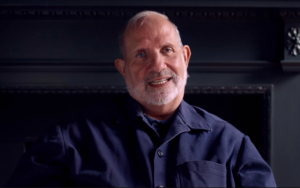DE PALMA: 4 STARS. “a simple film about a complex subject.”
 Tracking shots. Split screens. Eighteen-minute Steadicam sequences. Visually spectacular set pieces. All are part of the Brian De Palma canon, but absent from a new, comprehensive look at his career. “De Palma,” a love letter to the director from filmmakers Noah Baumbach and Jake Paltrow, makes up for its lack of visual pyrotechnics with De Palma’s storytelling prowess.
Tracking shots. Split screens. Eighteen-minute Steadicam sequences. Visually spectacular set pieces. All are part of the Brian De Palma canon, but absent from a new, comprehensive look at his career. “De Palma,” a love letter to the director from filmmakers Noah Baumbach and Jake Paltrow, makes up for its lack of visual pyrotechnics with De Palma’s storytelling prowess.
“Many of movies were considered great disasters at the time,” says the director of “Phantom of the Paradise,” “Dressed to Kill” and “Body Double.” Now, decades after his commercial peak, many of De Palma’s films are considered classics. This new talking head documentary chronicles them all, warts and all.
From his early days as an indie filmmaker, working in the shadow of better known friends like Steven Spielberg, Martin Scorsese, George Lucas and Francis Ford Coppola, to his critically reviled (“You are always being criticized against the fashion of the day,” he says.) but commercially successful period to a brief era when reviews and audiences lined up in tandem, he holds nothing back.
We learn how the director kicked “Scarface” screenwriter Oliver Stone off the set for talking to the actors, that in “The Untouchables” Robert De Niro wore the same kind of silk underwear Al Capone wore (“You never saw it but it was there,” says De Palma.) and how the studio loved the controversial “Body Double” “until they saw it.”
There’s more, told in De Palma’s bemused, colourful way—“I love photographing women,” he admits. “I’m fascinated by the way them move.”—but the real meat of the doc comes when he auteur talks about being a square peg trying to fit into Hollywood’s round hole. “The values of the system are the opposite of what goes into making good original movies,” he says.
“De Palma” is a simple film about a complex subject. “The thing about making movies is every mistake is right up there on the screen,” he says. “Everything you didn’t solve. Every shortcut you made. You will look at it for the rest of your life. It’s like a record of the things you didn’t finish.” It’s a master’s class not just in De Palma’s life and career, but also in how movies were made in the latter half of the twentieth century.
